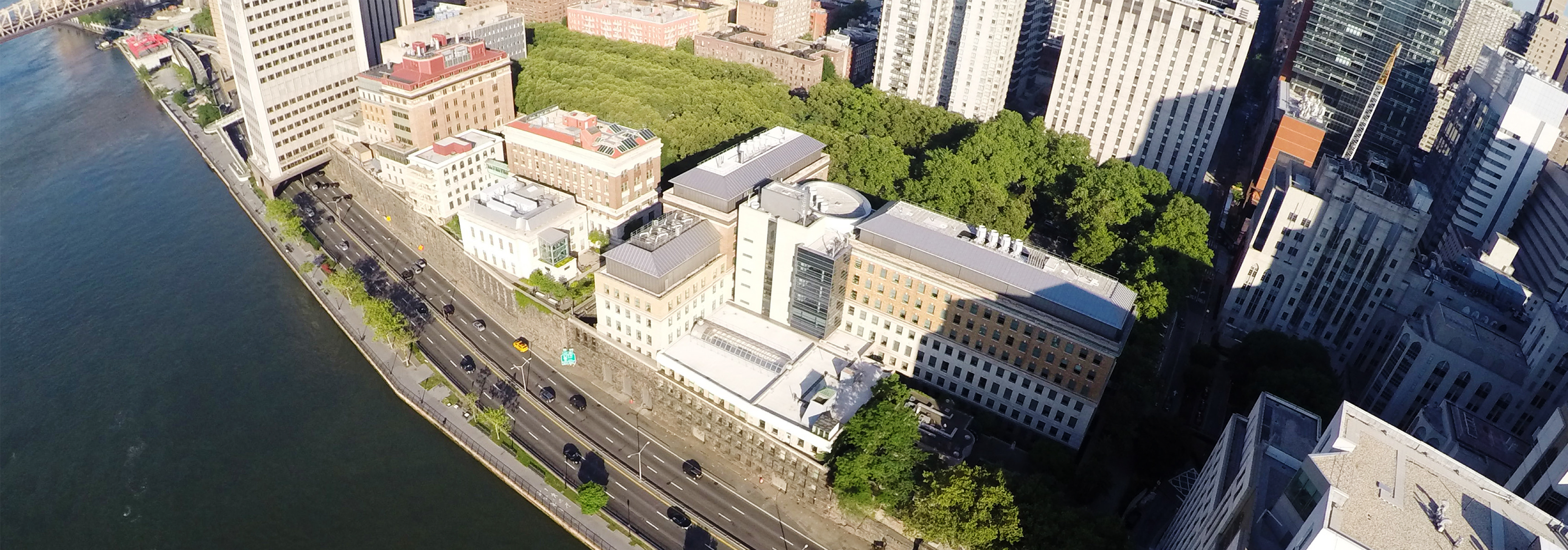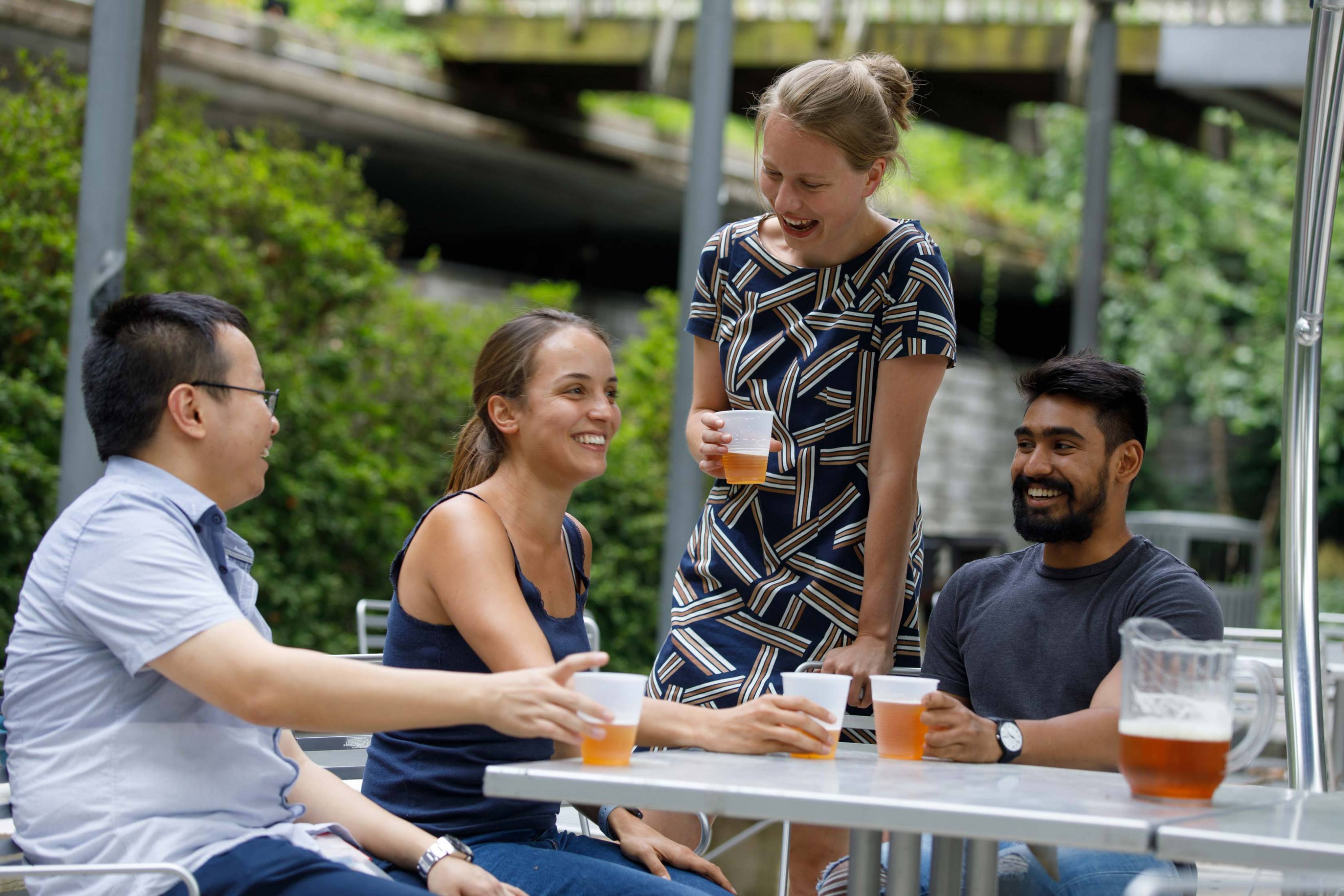Audrey Goldfarb
Unbelievably, less than a month remains in the 2019 fall semester. The last few months have been a whirlwind of rotations, classes, and transitions for the first-year class. Though Rockefeller students tend to present as confident, curious, and well-adjusted people, few painlessly sail through the first year (or subsequent years for that matter). I gathered anonymous reflections from a sample of first-year students, many of which echo each other.


Though the freedom of the Ph.D. program at Rockefeller was a major draw for members of the 2019 first year class, the unstructured nature of the classes has been an adjustment for some. Rockefeller’s curriculum is advertised to have few mandates and still offer courses instructed by world leaders who genuinely care about teaching. The actual content and structure of the individual courses is not extensively discussed during recruitment, which may contribute to unmet expectations.
“The biggest surprise for me starting grad school at Rockefeller were the classes, or the lack thereof. By lack I don’t necessarily mean like lack of actual classes to take, more like how un-stringent the classes so far actually are.”
“I will admit that part of the draw for me was knowing that I could get to take the classes I was most interested in while circumventing some of the ones I wasn’t. But I didn’t realize that that would also translate into classes that are way less structured than I was used to.”
“I knew beforehand that the classes were very relaxed, but I think this allows us to actually care about learning and not worry about getting a passing grade, which we all know how to do.”
Rockefeller students are allowed the freedom to pursue research in fields in which they have no experience but are generally expected to acquire the fundamental knowledge of that field independently. Classes don’t offer extensive background information before delving into complex concepts and modern research. This proves to be a formidable challenge, especially while balancing classes and productivity in the lab. However, this process is a key part of independent research, and developing a degree of self-sufficiency is valuable in the long run. Some first-year students already feel their hard work paying off.
“I was hoping that the classes I was interested in would’ve started out by giving me that background and then bringing in guest speakers to talk more in depth about their topics and then I would be able to engage with the material better after having that first introduction. …I’m trying to transition into a completely new field from my previous experiences and I was kind of counting on the classes to help ease my way into that transition.”
“I wasn’t able to get as much out of the talks as I could’ve because I didn’t start with a solid foundation of the subject, so many of the seminars I spend just trying to catch up on background.”
“Going into a general bio program after doing research in a pretty specific subfield of biology was challenging at first–I felt like I was often missing something in class and have had to relearn plenty of material. I do think this has been rewarding, because I feel ultimately more prepared to understand all facets of the research in my field.”
“Since I started my PhD program at Rockefeller, I have been experiencing elevated feelings of excitement coupled with huge responsibility. My excitement stems from being at this amazing institution with limitless opportunities to learn and thrive on the academic and personal levels; however, it is up to me really to decide to what extent I will be growing at this new stage. In the first couple weeks, I have been mentally transitioning from being an undergraduate student with a packed schedule of classes and exams to being a graduate student with a more flexible schedule and no rigid requirements for classes and lab work. This flexibility, although very useful, can be scary sometimes if I don’t make use of my time efficiently. I have been also learning to set my own short-term goals and evaluate myself periodically. It is worthwhile to mention that the environment at Rockefeller as an institution and in my lab are very conductive of learning and adjusting at my own pace. “
Textbook discoveries made at Rockefeller laid the foundation for decades of incredible discoveries, and the University’s history continues to inspire this generation of scientists.
“I think the history and the impact of this place keeps hitting me when I least expect it. I’ll be going about my day and remember I’m walking past the same building where Avery, McCarty, and MacLeod figured out DNA was the heritable material.”
“I’ve gotten to hear really incredible scientists give talks in my classes.”
“One of the things I have been enjoying about being at RU is the enriching scientific community between RU, MSKCC, and WCMS. I have the chance to listen to outstanding scientists in different fields from all over the world and learn from them. Also, the organized breakfast and lunch events with some of the speakers at RU are a good chance to hear their perspectives and discuss common issues in the scientific community. These events are also potentially very useful in expanding our network and building connections.”
“So much of textbook biology was written here. The research I spent my entire undergrad on was pioneered here—and I’ll remember that while I’m in sweatpants on the couch, eating an entire tin of Trader Joe’s dolmas straight from the can.”
As with every transition, starting graduate school in a new city comes with many challenges. Building a new support network of friends and colleagues is made easier by the welcoming environment at Rockefeller.
“My biggest fear when moving to New York to start graduate school at Rockefeller was leaving everything that was familiar behind, including friends and family. However, everyone here has been super supportive and the friends that I have made here are like my second family. I was surprised at how well I was able to actually adjust once I got here, and the people at Rockefeller played a huge role in that. Although, I am still incredibly intimidated being at an institution with such a high scientific caliber, I don’t regret my decision coming here.”
“From the first day at RU, the environment has been welcoming at every level. The orientation week was a great time to talk to my colleagues and get to know them more and also to get to know the Dean’s Office and university staff. Also, the various student and science retreats have been a great chance to learn more about the science and the people at RU. I think this gave me a chance to build a close community of colleagues, which is very important to me.”
“I feel fortunate to be friends and colleagues with members of the first year class. Their curiosity, diversity of expertise, and ability to be comfortable with their own ignorance fosters a stimulating and supportive atmosphere. Owing to this class, I am comfortable calling Rockefeller my home. I am looking forward to seeing where their interests take them and to celebrate their successes in and out of the lab.”
“The transition back to research and into the PhD after clinical rotations in med school was a welcome break in the pace of my daily life. But what surprised me the most about trying to re-integrate into the research world was how afraid I had become [of] asking questions. The hierarchy and intense grading schemes of clinical rotations had now taught me to be afraid of seeming stupid when asking questions in the hospital. However, this fear had integrated much more deeply than I ever suspected. Luckily, the more I’m around my peers and lab members at Rockefeller, the more I’m realizing there is nothing to be afraid of. I’m consistently in awe of the research ideas that develop from questions asked in casual conversations or in lab meetings. As I work on slowly getting back to being a confident question-asker, I feel really lucky to be in the intellectually curious environment fostered by the community here at Rockefeller.”
“Overall, I am pretty happy with the experience and the program. I feel that our year has a good mixture of people from different backgrounds and whenever they voice their opinion on data and experiments, I’m learning too.”
Of course, there are exceptions, and word travels fast about the hostile reputations of some labs.
“…I’m not rotating with them because I know this from fellow students, so I think there should be something done about it since their research is pretty cool and keeps away many students (I’m sure it’s not only me).”
The amenities Rockefeller offers to its graduate students are the cherry on top. As advised by older students, we are enjoying the free bagels and coffee while they last.
“In addition to the science seminars, I am really enjoying the Peggy concerts hosted at RU. I view these concerts as a chance to enjoy the taste of music and just relax after a long lab day.”
“When I started graduate school at Rockefeller, I knew it was the place for me. Not really because of the fabulous community within my first year cohort, or the wonderful community of driven and excellent scientists, but because of the plentiful and bountiful opportunities to eat free food. There have been weeks where I was able to get gourmet lunch 4/5 days, without spending a penny. What a luxury!”
